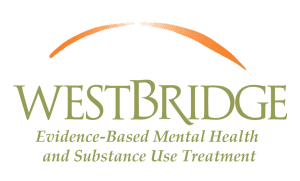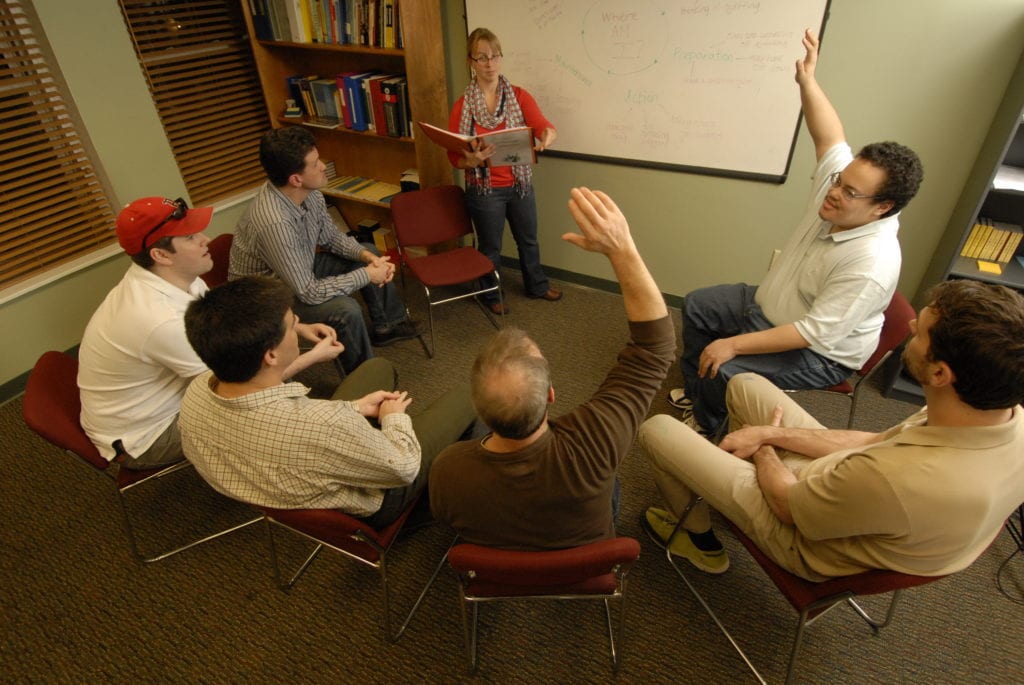
At WestBridge, we are committed to providing optimal care in a truly integrated dual diagnosis treatment program. Our family-centered, evidence-based treatment for individuals experiencing symptoms of a co-occurring mental illness and substance use disorder is individualized for each participant. Evidence-based treatment refers to interdisciplinary practices based on research showing their effectiveness. In our dual diagnosis rehab, we integrate individuals who have entered our treatment center, their families, and a single, consistent care management team to create an atmosphere of trust and respect. We conduct all treatment at one residential setting to enhance the sense of security. If an individual does require a hospital stay during the course of treatment, our clinical team members will make visits and will work with the hospital staff on plans for transition back to our treatment center.
We also engage and educate families throughout the course of treatment, helping them to understand what happens when people with mental health disorder symptoms, such as hallucinations, anxiety, delusions, depression or mood swings, adds substance use to the mix. Family members meet once a week, either in person, by phone or through the use of video, to discuss educational materials and to hear about progress on the individualized treatment agendas created by the participant and his treatment team. Education topics include how to recognize and manage stress and how to understand the progressive nature of substance use disorders. Family workbooks also provide information about medications, how they interact with certain substances and how to manage medications. Participants and their families work together on developing new patterns of communication in order to reduce tension.
Community Settings Used In Dual Diagnosis Treatment Programs
As participants in our residential dual diagnosis treatment programs develop confidence and strength, the care management team will begin to provide opportunities for community-based treatment. The team models the Assertive Community Treatment approach used in our outpatient programs. In this model, team members help participants develop and practice skills they will need in order to function in their communities. Specialists in the areas of housing, finances, employment, symptom management, medical care, and family life will work with individuals and families to smooth the transition into regular daily living. Their services are available 24 hours a day, seven days a week, which frees family members from having to provide crisis intervention.
Dual Diagnosis Treatment Programs Utilize Various Therapeutic Techniques
Throughout integrated dual diagnosis treatment programs, our care management team will utilize a variety of techniques to assist in the program of recovery. These include:
- Cognitive Behavioral Therapy – In all human beings, thoughts, emotions and behaviors have a fundamental connection. Cognitive behavioral therapy helps identify and modify dysfunctional thoughts and behaviors that underlie symptoms of co-occurring mental illness and substance use disorders. Therapeutic techniques focus on ways to change negative thought patterns and resultant behaviors.
- Medication Management – Using medication in a systematic and effective way as part of the overall treatment for severe mental illness can yield extremely positive results for many individuals. WestBridge monitors and records each participant’s results throughout the treatment process, involving individuals, their families, and their clinical team in decision making during each stage. Our medical team employs a caring and thoughtful approach to each participant’s wellness and response to treatment.
- Motivational Interviewing – Motivational interviewing is a goal-oriented, participant-focused process that engages individuals in the treatment process, decreases ambivalence and encourages increased personal drive. This counseling style helps participants develop coping skills, insight, and behavior that enhance their recovery and their sense of personal importance.







